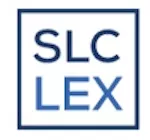- in Nigeria
- with readers working within the Retail & Leisure industries
- within Real Estate and Construction topic(s)
By a decree of the Ministry of Enterprises and Made in Italy on October 9, 2023, the functionality of the Register of beneficial owners of legally recognized entities is established, including a special section for trusts that produce legally relevant effects for tax purposes.
Until the next December 11, 2023, all administrators of companies with legal personality or individuals to whom the representation and administration of private legal entities are attributed will be required to communicate the data and information related to beneficial ownership to the office of the business register of the territorially competent Chamber of Commerce.
The following entities must make the communication of beneficial ownership:
- Companies with legal personality, joint-stock companies, limited liability companies (S.p.a.,; S.r.l., S.a.p.a., and cooperative societies) ;
- Private legal entities (foundations and recognised associations);
- Trusts resident in Italy.
The communication is not required for partnerships – Società di Persone (general, limited and simple partnerships-Società Semplici).
The communication concerns the data of the beneficial owner (i.e., the natural person to whom direct or indirect ownership of the entity or its control is attributed) and is sent by the legal representative (in the case of trusts, by the trustee).
The contents of the declaration are:
- Data of the entity;
- Data of the beneficial owner (name, surname, tax identification number, residence, and certified email address);
- The method by which beneficial ownership is determined.
Beneficial ownership must be determined through one of the following methods:
- Direct ownership of more than 25% of the capital;
- Indirect ownership of more than 25% of the capital;
- Majority control of exercisable votes in the ordinary assembly;
- Control of sufficient votes for dominant influence in the ordinary assembly;
- Existence of contractual constraints for dominant influence over companies;
- Holder of powers of representation, administration, or management;
- Counterparty with access to the entity due to exposure to a disproportionate risk of fraud, kidnapping, blackmail, extortion, harassment, violence, or intimidation, or an incapable or underage person.
The data sent must be updated annually, and any changes must be communicated within 30 days from the completion of the act that originates the change.
The sanctions for non-compliance are administrative in nature and range from 103 euros to 1,032 euros.
"Who can access the register of beneficial owners?"
Access to information about legal ownership is granted to the following parties:
- For companies and private legal entities,
access is open to the public upon request without
limitations.
- For the special section related to trusts and similar legal entities, information is made available to authorized parties as per Article 21, paragraph 4, letter d-bis, first and second periods of the anti-money laundering decree (Legislative Decree 21/11/2007 No. 231), namely:
a) The National Anti-Mafia and Anti-Terrorism Directorate, without any restrictions;
b) The judicial authorities in the exercise of their institutional powers provided for by current regulation;
c) The responsible authorities for combating tax evasion;
d) The obligated entities, to support compliance with the requirements prescribed for adequate verification, subject to accreditation and payment of the secretarial fees as per Article 18 of Law No. 580 of December 29, 1993 (this is the case of lawyers and accountants);
d-bis) To private individuals who hold a significant and differentiated legal interest when the knowledge of beneficial ownership is necessary to safeguard or defend a legally protected interest, provided that they have concrete and documented evidence of a mismatch between beneficial ownership and legal ownership. The interest must be direct, concrete, and current, and in the case of representative entities with diffused interests, it must not coincide with the interest of individual members of the represented category. In exceptional circumstances, access to beneficial ownership information can be excluded, in whole or in part, if access would expose the beneficial owner to a disproportionate risk of fraud, kidnapping, blackmail, extortion, harassment, violence, or intimidation, or if the beneficial owner is an incapacitated person or a minor, according to a case-by-case approach and following a detailed assessment of the exceptional nature of the circumstances.
The content of this article is intended to provide a general guide to the subject matter. Specialist advice should be sought about your specific circumstances.



